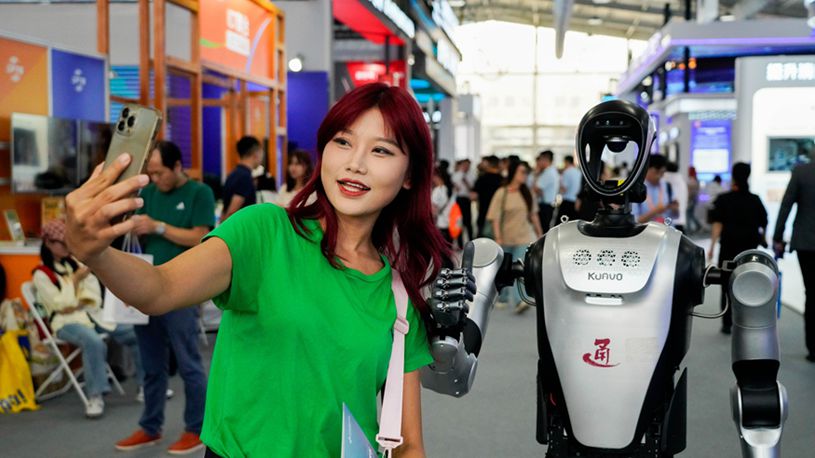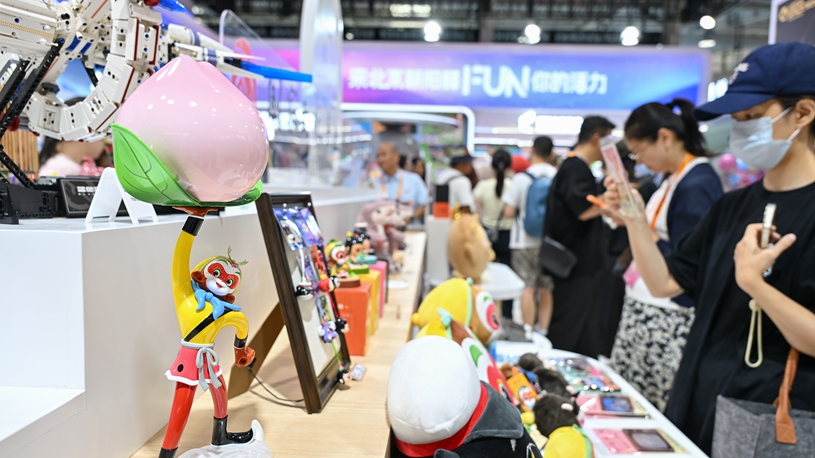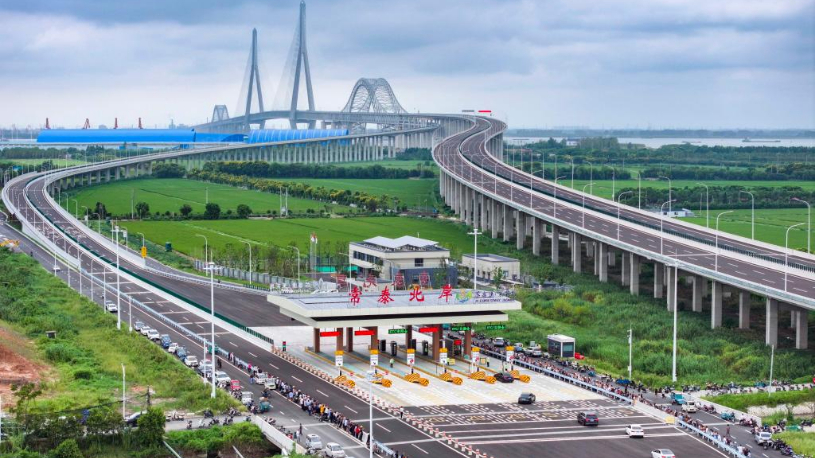Fast, smart, electric, IAA Mobility 2025 offers glimpse into future of driving
Source: Xinhua
Editor: huaxia
2025-09-13 05:12:15
From BYD's record-breaking Megawatt charger to AI-powered EVs by XPeng, and from Mercedes-Benz's all-electric GLC SUV to BMW's next-generation iX3, cutting-edge software and advanced battery technologies are redefining driving.
MUNICH, Germany, Sept. 12 (Xinhua) -- Four days into IAA Mobility 2025, more than 750 automotive companies from around the world are showcasing state-of-the-art products that highlight the cutting-edge trends reshaping the industry.
Among the many dazzling innovations, electrification and digitalization stand out as the driving forces behind the sector's rapid transformation.
Electrification, particularly in battery technology, is advancing at an unprecedented pace, as demonstrated by a wide array of exhibitors.
BYD, one of China's leading electric vehicle manufacturers, unveiled its Megawatt Flash Charge system, capable of replenishing up to two km of driving range per second of charging. With just five minutes on this system, an EV can gain an additional 400 km of range.
Long-standing concerns such as charging time and range anxiety, especially in Europe, have discouraged EV adoption, but BYD's breakthrough marks a milestone in charging and battery technology.
CATL, the world's largest EV and energy-storage battery producer, introduced its NP 3.0 battery safety technology, which prevents open flames and smoke in the event of thermal runaway, which is among the most lethal causes of battery-related EV accidents. The company also showcased its Shenxing Pro battery, designed to sustain high-voltage power and ensure vehicles can drive safely away from danger.
Major automakers also used the exhibition to debut new models.
Mercedes-Benz premiered its all-electric GLC SUV, featuring 800-volt architecture, 360 kW maximum power, and 330 kW DC fast-charging capability.
BMW revealed its next-generation iX3, equipped with sixth-generation eDrive technology, delivering a range of up to 805 km and peak charging performance of 400 kW.
Beyond lithium-ion batteries, alternative powertrains such as hydrogen fuel cells and solid-state batteries gained significant traction. France's Renault and Croatia's Rimac presented hydrogen fuel cell range-extender concepts and solid-state battery units, underscoring the industry's pursuit of diversified energy solutions.
While electrification is making EVs safer and more user-friendly compared with combustion-engine vehicles, digitalization is redefining automobiles through expanding software applications.
Automobilwoche, a German automotive magazine, summarized the show's central themes as "digitalization and electrification," with the software-defined vehicle (SDV) at the heart of discussion.
ZF Group, a leading German auto supplier, showcased its software-defined chassis and cubiX vehicle motion control system, including steer-by-wire technology that replaces mechanical linkages with variable software-based connections.
The innovation promises greater precision, stability, safety, and responsiveness, while enabling new steering wheel and cockpit designs.
As digitalization deepens, technology companies such as NVIDIA are becoming indispensable partners for automakers. Ali Kani, vice president of Automotive at NVIDIA, highlighted the shift "from horsepower to computing power, and from mechanical systems to software stacks." NVIDIA presented its full-stack integrated safety system designed to ensure secure development of autonomous vehicles, from cloud to car.
The rise of AI-powered vehicle intelligence is opening a new phase of innovation. Chinese companies, in particular, are emerging as formidable players thanks to strong R&D and vast data accumulation.
XPeng unveiled a "tech ecosystem" that spans intelligent EVs, flying cars, and humanoid robots. Chairman and CEO He Xiaopeng predicted that 2026 will mark a tipping point for AI cars, dividing the market between vehicles with AI and those without.
IAA Mobility 2025 in Munich ultimately underscored an industry in rapid transformation, where electrification lays the foundation, software defines the experience, and artificial intelligence unlocks new capabilities, collectively reshaping the global future of mobility. ■












Comments